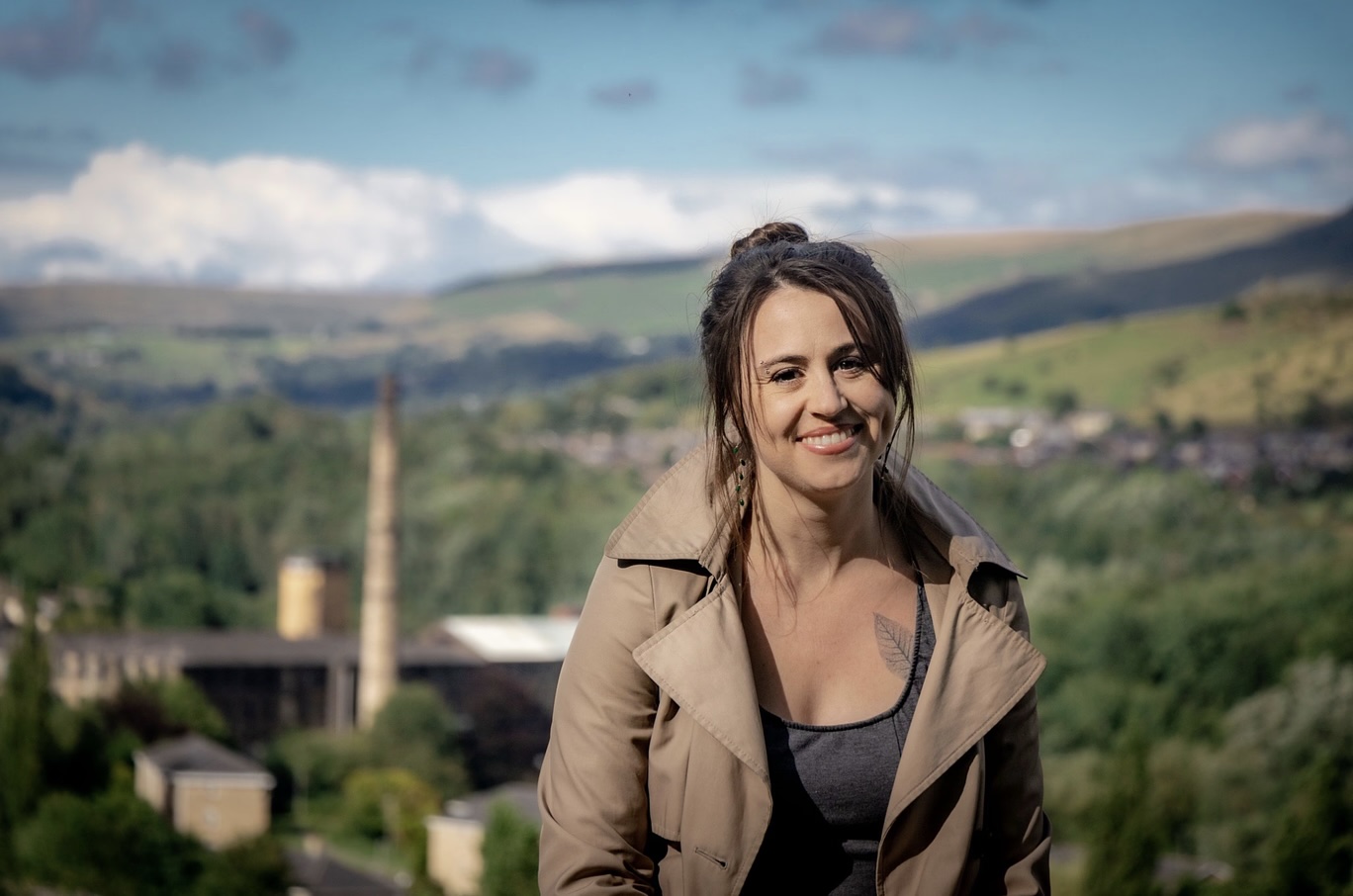Q&A with Katherine Balch ’16MM
In April, assistant professor of composition Katherine Balch ’16MM was awarded a 2025 Guggenheim Fellowship. She was one of 198 recipients across 53 disciplines recognized for previous career achievements and exceptional promise. In this conversation, she talks to us about her approach to music, finding inspiration, and future plans.
Q: Congratulations on your Guggenheim Fellowship. How do you feel?
A: It feels really nice. It was really exciting, and gratifying, and surprising.
Q: What are you planning to do with this opportunity?
A: There are a few parts to my project. First, I want to record and produce an album of my chamber works because I don’t yet have a portrait album — an album of my most representative music. That feels like an important, missing piece of my career profile. Part of the album will be centered around music I’ve written for double bass over the past 15 years.
Q: Why the double bass? How did you find your way to it?
A: It’s my favorite instrument in the orchestra for a few reasons. Have you ever played double bass? It’s really hard to tune down there. Our ears are optimized to hear in the treble registers — we hear best above middle C. So to tune down there, you have to be a really good listener. And to play in unison with an orchestra section that’s helping everyone else tune up, you have to be good at compromising — sometimes sacrificing your own sense of intonation to be part of a community. So the performance practice of the double bass often translates into these other attributes ideal for collaboration.
Q: What are you envisioning for a project centered around the double bass?
A: I want to write a substantial, multi-movement work for double bass and piano for my longtime collaborator, Eddie Kass. We’ve been working together since we were both freshmen at New England Conservatory.
That kind of thing is where the Guggenheim is really helpful — it’s such a personal project. Normally, when I get commissioned, it’s to write a piece for an ensemble or orchestra. It’s hard to find the time, space, and funding to write these passion-project pieces. So the Guggenheim gives me carte blanche to write music that’s not necessarily on my commission docket. That new piece for Eddie is going to be the core of the album, along with Kalesa Ed Kaluca, my piece for seven double basses.
Q: What’s the origin of the piece you’re writing for Eddie?
A: We’ve been dreaming about a piece together for years. We talked about fixed media and double bass, solo bass, even long-term ideas like a concerto. But a duo for piano and double bass felt right — simple, flexible, and rich with possibility.
I like writing weird pieces for weird instrumentations that don’t obviously slot into standard concert programs. It’s a way to open things up, to create space for things people might not otherwise encounter. And I hope it could serve as a template for a larger ensemble version someday.
Q: How did you know you and Eddie would make good collaborators?
A: Eddie’s just a great musician and a great friend. I trust him completely to understand my musical instincts and suggest solutions to musical problems. A group of us that were all friends as undergrads are still all really close. You know, the people you meet in music school are the people you will continue to work with and seek out collaborations with for the rest of your life.
Q: Beyond composing, what else are you hoping to do during this time?
Honestly, just to revise a lot of works in my portfolio. For many composers, the perception is that the premiere is the culmination of a piece, but in reality, it’s often just the beginning. It’s the first time you match the imagination in your head to the acoustic reality of a thing being performed in space, in front of people, with real humans. Revising often falls on the back burner because our careers are so oriented toward the next thing. So I want to use the time and space afforded by the Guggenheim to do that.
Q: You’ve cited grapes (obstenmelodie), glow worms (thread, unfurled), fireflies (musica pyralis), and leaves (Leaf fabric) among sources of inspiration. Why do you gravitate towards these things, these “tiny sounds” as you’ve called them?
A: So much of the music I write is an attempt at transcribing or documenting my aural experience of working through the world — gestating in that experience and recontextualizing it or reimagining it for acoustic instruments. It’s probably not unrelated to why I like the double bassist’s approach to listening so carefully to the edges of sound — the intonation of a very low frequency string, or the different bandwidths of noise you’d notice if we sat here silently for thirty seconds: the road outside, the HVAC system, that kind of thing.
Q: How does your teaching influence your compositional work?
A: I don’t think one would exist without the other for me. This semester I taught a class on field recording and acoustic ecology. We did a lot of listening activities and creative projects around found sounds. And we looked at this long lineage of artists and composers who have engaged with their environments through music. That’s always been a part of the tradition, even going back to the earliest artifacts of music-making. Every time I teach it, I discover something new, either from revisiting the material or from the students themselves. Their feedback, their projects — they can totally shift my perspective. Sometimes a student brings in an idea or a reference point that makes me rethink my own work. That kind of stuff is the greatest magic that can come out of a classroom.






